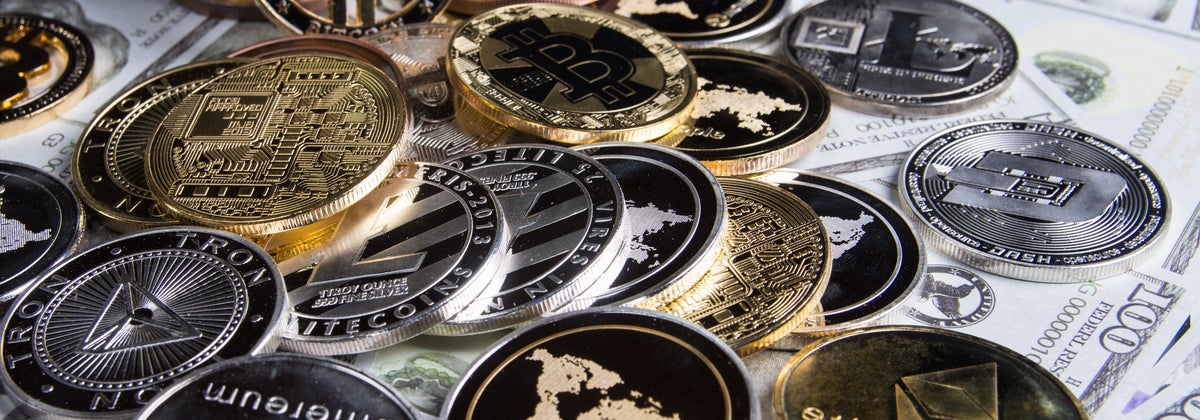Why do you need a crypto wallet?
Crypto wallets can store, send, and receive multiple types of coins and tokens. They vary tremendously in complexity and form. Some support only basic transactions, while others feature advanced functions. Before settling on a wallet, consider its primary use and what’s most important in your crypto-transacting experiences.
The dilemma of choosing a crypto or Bitcoin wallet generally comes down to a matter of safety versus speed, or control versus convenience.
What to look for in a crypto wallet?
Ideally, a wallet should:
- Be easy to install
- Be safe to use
- Put users in complete control of their funds
- Be accessible on the go
While it’s not easy to find a crypto wallet that satisfies all of the above conditions, we can certainly help you determine which type of wallet could be best for your needs.
Bitcoin & Crypto Wallets: Everything You Need to Know. In this article, we cover:
- Custodial vs. non-custodial wallets
- Desktop wallets
- Mobile wallets
- Hardware wallets
- Crypto wallets: important factors
Custodial vs. non-custodial crypto wallets
One of the most important ways to classify crypto wallets is by whether they allow users access to their private keys or not. This is important because cryptocurrency was meant to be used as a bearer instrument, akin to cash. Maintaining personal ownership of private keys means that nobody but you is responsible for the security of your funds. However, this may be too big of a first step for those new to the crypto world.
Custodial wallets safeguard the private keys for the user. Examples of these include cryptocurrency exchanges, certain web wallets and most mobile wallets. These wallets act like a bank, tasked with keeping funds secure until the user wants to withdraw them.
Non-custodial wallets place control of private keys in the hands of the user. The most popular of these include Exodus (software wallet), Blockchain.com (web wallet), and Metamask (browser extension). Wallet clients released by coin developers themselves (such as Bitcoin Core and Litecoin Core) are also non-custodial wallets.
You may have heard the phrase, “Not your keys, not your Bitcoin,” which stresses the importance of private key ownership. If your digital asset custodian suddenly disappears, taking your crypto with them, then the saying will ring true. On the other hand, regulated crypto exchanges like Independent Reserve have come a long way in terms of user protection, even offering insurance on their customer’s cryptocurrency assets.
Once you are a bit more comfortable with the idea of keeping the private keys to your coin stashes, you may want to consider moving them to one of the three most popular non-custodial wallet solutions. Each has its advantages and disadvantages, and some are designed more for long-term storage than others.
Where to buy Crypto in NZ
The display order does not reflect any ranking or rating by Canstar. The table does not include all providers in the market.
| Provider | Fiat Currencies | Bitcoin | Other Currencies | Est. |
| Easy Crypto | NZD, AUD | Yes | 100+ | 2018 |
| Independent Reserve | NZD, AUD, USA | Yes | 24 | 2013 |
| Kiwi Coin | NZD | Yes | No | 2014 |
| Swyftx | NZD, AUD | Yes | 228 | 2017 |
This information is not an endorsement by Canstar of cryptocurrency or any specific provider. Canstar is providing factual information supplied by providers. Cryptocurrencies are speculative, complex and involve significant risks. Canstar is not providing a recommendation for your individual circumstances or in relation to any particular product or provider.
Desktop wallets
A desktop wallet is a PC application that runs on Windows, iOS, or Linux. It includes full applications, such as Bitcoin Core, and lightweight clients, like Electrum and Metamask. If you’re looking for a dependable wallet specifically tailored for Bitcoin (BTC) storage and transacting, Electrum is a great choice. The only issue with Electrum is that it is for Bitcoin only. Similar in design and function, applications inspired by Electrum have been built for Litecoin, Bitcoin Cash and most recently, Moner. However, they are not multi-coin wallets, and you will need to download each application individually to store your coins.
The browser-based Ethereum (ETH) wallet Metamask is among the most popular in the world. This is because it allows anyone to transact any token in the broad universe of ERC20 tokens, such as Chainlink (LINK), Tether (USDT) and Basic Attention Token (BAT), right from their web browser. Like Electrum, it requires a basic understanding of how cryptocurrency transactions work, which can be a little more complex in the world of Ethereum. Regardless, both Electrum and Metamask are at the top of the desktop wallet game and good starting places for those jumping into self-custody wallets for the first time.
Mobile wallets
Mobile wallets include cryptocurrency wallets that run on phones, tablets, and other mobile devices (Android and iOS). They are a good option for those who favour portability and convenience, although they can also be the least secure.
Mobile wallets make transacting easy, as funds can be sent to addresses represented by QR codes, which means no copy/pasting of the address is necessary. There are several decent multi-coin mobile wallets out. They come in particularly handy if you unexpectedly need to send or receive a particular coin on the fly.
Trust Wallet, for example, supports 160+ coins and tokens, and is adding new ones all the time. Digital assets can be easily swapped from inside the app, and even purchased using a credit card option. While Trust Wallet does not maintain your private keys per se, it does allow you to recover the entire contents of your wallet using a back-up mnemonic (which essentially acts as a cross-coin private key).
For those looking for a more straightforward mobile wallet experience, Edge is a bit pared down in comparison, currently supporting only seven cryptos. For the coins that it does support, Edge has integrated several easy-to-use conversion services that make spending crypto in real life a cinch. Like Trust Wallet, Edge lets users maintain total control of their funds.
Hardware wallets
As the name implies, a hardware wallet, also often referred to as a cold wallet, is a physical device that connects to a computer and/or mobile device. Therefore, these devices allow cryptocurrency to be stored offline; a practice commonly referred to as cold storage. They are great for those who value security and are looking for a safe place to stash their coins for a considerable time.
If you’ve heard of hot wallets, this refers to wallets that are connected to the internet, such as mobile and desktop wallets. By design, hardware wallets can make the spending process a bit more cumbersome, as you need to connect your device to the internet to sign an outgoing transaction. For those looking at long-term investing, and are wary of leaving their coins on an exchange, a hardware wallet can be the optimal solution.
By far the two most popular hardware wallet brands are Trezor and Ledger. Both brands are relatively similar in concept, allow the storage of a multitude of coins, and have similar costs.
Trezor is generally considered to be the most secure of the two. Its open-source nature renders it not only more trustworthy among the community, but signifies that its developers are ready for it to be battle-tested. One of the only significant differences between the two wallet brands is that Ledger wallets tend to be made of stainless steel, and Trezor wallets tend to be made of plastic.
Crypto wallets: important factors
Regardless of which wallet you decide upon, always consider the risks associated with storing coins in any format. Did a trusted publisher build it? What happens to your coins if a wallet’s servers go down? Being familiar with the reputation and the ins and outs of your wallet can go a long way in terms of avoiding crypto catastrophes. So take your time before deciding on which wallet to choose, and remember to consider the breadth of options available for your crypto(s) of choice.
How to buy Bitcoins in New Zealand from a Bitcoin exchange
There are hundreds of Bitcoin exchanges on the internet, based all over the world. However, while Bitcoin exchanges and the trade in Bitcoins are not regulated, the Kiwi dollars you must spend to purchase Bitcoin are.
For example, there are many big exchanges over the ditch in Australia, and in the US, but to use them you’ll need a bank account in those countries. But there are some Kiwi operators, and a few big players have sites here that accept Kiwi dollars.
There are two benefits of using Kiwi dollars to buy your Bitcoin:
- You know exactly how much you’re spending
- You’ll not be hit with excessive foreign exchange fees and credit card processing fees
Enjoy reading this article?
You can like us on Facebook and get social, or sign up to receive more news like this straight to your inbox.
By subscribing you agree to the Canstar Privacy Policy




Share this article